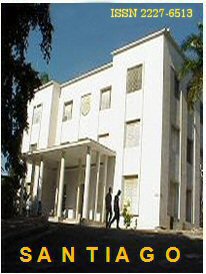Literature as verbal exchange: application of the model of grice's conversational implicatures to the analysis of a narrative text
Keywords:
cooperative principle, implicature, literature, readingAbstract
The present work aims to apply the model of Grice's conversational implicatures to the analysis of the story “Footprints,” the Argentine writer Javier Chiabrando, as the literature is also a linguistic manifestation. In this case, the language is used not only to produce a statement, but also to run at the same time, certain social action: the author (sender) wants to be understood to modify knowledge, desires and eventually, the behavior of reader (receiver). That is, literature is not only aesthetic action (it has expressive function) but also social action. For this discourse to fulfill its purpose, both the speaker and listener must share the same linguistic code, and must meet a set of rules that guide communication and make possible what the listener can understand how “the press” is as the speaker wants to communicate. These rules are called the COOPERATIVE PRINCIPLE.
References
Chiabrando, J. (2006). Querer escribir, poder escribir. Santiago de Cuba: Editorial Oriente.
Dijk, T. A. van (1983). La ciencia del texto. Barcelona: Paidós Ibérica.
Fajardo Uribe, L. A. y Moya Pardo, C. (1999). Fundamentos neuropsicológicos del lenguaje. Santa Fe de Bogotá: Instituto Caro y Cuervo; Salamanca: Ediciones Universidad de Salamanca.
Levinson, S. (1995). Pragmatics. Reino Unido: Cambridge University Press.
Renkema, J. (1999). Introducción a los estudios sobre el discurso. Barcelona: Editorial Gedisa.
Ullmann, S. (1976). Semántica. Introducción a la ciencia del significado. Madrid: Aguilar.
Downloads
Published
Issue
Section
License
Copyright (c) 2017 Isamary Aldama-Pando

This work is licensed under a Creative Commons Attribution-NonCommercial-NoDerivatives 4.0 International License.
CC Reconocimiento-NoComercial-SinObrasDerivadas 4.0



.jpg)

_de_logo.jpg)













